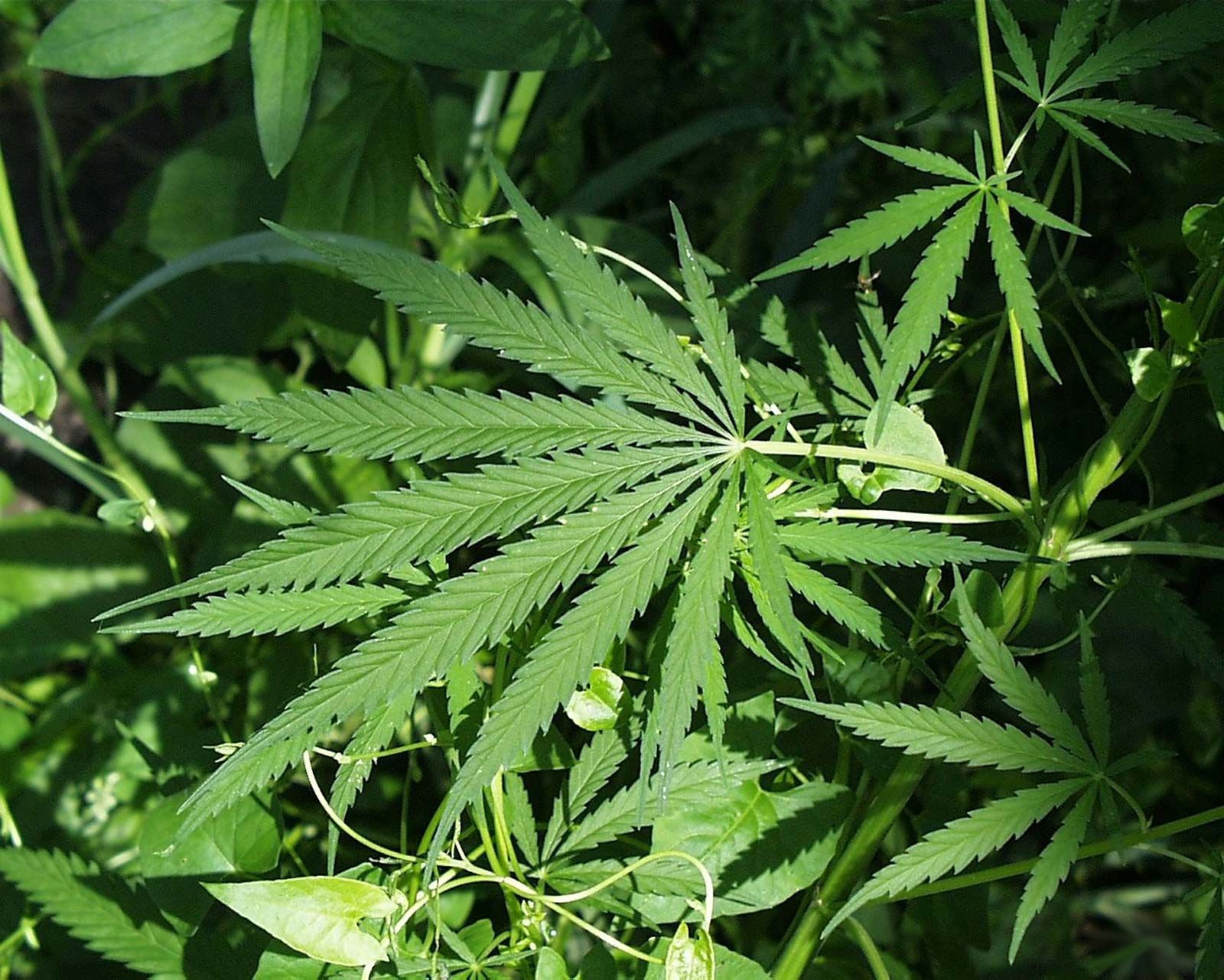In this fascinating article, we will explore the remarkable potential of hemp in revitalizing local economies and artisan communities through real-life case studies. By examining successful examples from around the globe, you’ll discover the transformative power of this versatile plant and its ability to breathe new life into struggling communities. From creating job opportunities to fostering sustainable practices, these case studies will shed light on the immense value that hemp can bring to individuals and entire communities alike. So, get ready to be inspired by the incredible stories of how hemp has become an agent of positive change and economic revival in various regions across the world.
1. Introduction to hemp as an economic catalyst
Hemp, a versatile and sustainable crop, is emerging as a powerful economic resource capable of revitalizing local economies. With its myriad benefits, including environmental sustainability, job creation, and economic growth, hemp has gained traction as a valuable asset in various industries. This article aims to explore the potential of hemp as an economic catalyst, delve into its market trends, examine successful case studies of hemp-based revitalization projects, discuss sustainable practices in hemp production, explore expanding market opportunities, and provide support for hemp entrepreneurs. By the end, you will have a comprehensive understanding of the positive impact that hemp can have on local economies and be encouraged to take action.
Benefits of hemp as an economic resource
Hemp boasts numerous benefits that make it an attractive economic resource. As a sustainable crop, it requires minimal water and no pesticides, making it environmentally friendly. Hemp cultivation also promotes regenerative farming practices, leading to improved soil health and reduced erosion. Additionally, hemp is a highly versatile plant, with applications ranging from textiles and construction materials to health foods and skincare products. Its diverse uses create a multitude of economic opportunities, driving job creation and economic growth. By tapping into the potential of hemp, communities can not only bolster their economies but also contribute to a more sustainable and resilient future.
Overview of the hemp industry
the hemp industry has experienced significant growth in recent years, driven by increasing demand for hemp-derived products and changing regulations surrounding its cultivation. With the passage of the 2018 Farm Bill in the United States, hemp cultivation became legal at the federal level, sparking a surge in interest and investment. This shift in policy has paved the way for entrepreneurs and farmers to explore the potential of hemp in various sectors, including textiles, construction, food and beverages, health and wellness, and cosmetics. The hemp industry is projected to continue growing exponentially, offering a wealth of economic opportunities for communities willing to embrace this emerging market.
Importance of revitalizing local economies
Revitalizing local economies is crucial for fostering sustainable development and ensuring the well-being of communities. Many regions face economic challenges such as unemployment, declining industries, and outmigration of skilled labor. By harnessing the potential of hemp, these struggling economies can experience a much-needed revival. Hemp-based revitalization projects provide new avenues for employment, attract investments, and diversify local industries. Moreover, the economic resurgence that accompanies hemp can breathe life into communities, improving residents’ quality of life and creating a sense of pride and resilience. It is essential to recognize hemp’s potential as an economic catalyst and explore ways to leverage it effectively for local economic development.
2. Understanding the hemp market
Current trends and growth of the hemp industry
The hemp industry has witnessed remarkable growth in recent years, fueled by changing attitudes towards hemp, advancements in processing technology, and the increasing awareness of its economic potential. Market trends indicate a rising demand for hemp-derived products such as CBD (cannabidiol) oil, hemp seeds, hemp fabrics, and hemp-based construction materials. According to a report by Grand View Research, the global industrial hemp market is projected to reach $15.2 billion by 2027, representing a compound annual growth rate of 15.8%. These trends signify the immense economic opportunities within the hemp industry and emphasize the need to tap into this emerging market.
Potential economic opportunities in hemp cultivation and processing
Hemp cultivation and processing offer a range of economic opportunities. Farmers can diversify their crops by incorporating hemp into their rotation, which can provide an additional source of income. Hemp cultivation requires fewer agricultural inputs, making it a cost-effective option for farmers. Additionally, hemp processing facilities can drive economic growth by creating jobs and attracting investment. Processing hemp into various products not only expands the market but also adds value to the crop. From fiber extraction to CBD oil production, hemp processing presents a plethora of economic possibilities that can invigorate local economies.
Challenges and obstacles faced by hemp entrepreneurs
Despite its vast potential as an economic catalyst, hemp entrepreneurs often encounter challenges and obstacles in their endeavors. Regulatory complexities and variations across different jurisdictions pose hurdles to hemp cultivation, processing, and marketing. Obtaining necessary licenses and permits can be a time-consuming and expensive process. Additionally, the lack of established supply chains and infrastructure presents logistical challenges, making it difficult for entrepreneurs to access reliable and efficient channels for their hemp products. Furthermore, misconceptions and stigma surrounding hemp can hinder consumer acceptance and market penetration. Overcoming these challenges requires collaboration among stakeholders, supportive policies, and community education initiatives.
3. Case Study 1: Hemp-based revitalization in [Name of Local Economy]
Background and context of the local economy
[Provide a brief description of the local economy and its challenges.]
Introduction of hemp as an economic solution
[Detail how hemp was introduced as a potential solution to revitalize the struggling local economy.]
Implementation of hemp initiatives
[Discuss the specific initiatives undertaken to integrate hemp into the local economy, such as establishing hemp cultivation programs, supporting hemp processing facilities, or fostering partnerships.]
Positive impacts on the local economy
[Highlight the positive outcomes resulting from the hemp-based revitalization efforts, such as job creation, economic growth, and improved community well-being.]
4. Case Study 2: The transformation of [Name of Artisan Community] with hemp
Description of the artisan community and its challenges
[Provide an overview of the artisan community, including its unique challenges and the decline faced by traditional artisan industries.]
Integration of hemp products and materials
[Explain how hemp products and materials were integrated into the artisan community, replacing or supplementing existing materials.]
Supporting local artisans in hemp-based businesses
[Discuss the initiatives taken to support local artisans in transitioning to hemp-based businesses, such as training programs, access to financing, and marketing assistance.]
Economic and social revival in the community
[Describe the economic and social transformations that occurred as a result of adopting hemp-based businesses in the artisan community, including increased employment, new market opportunities, cultural preservation, and community cohesion.]
5. Lessons learned and best practices
Identifying key success factors in hemp revitalization projects
[Analyze the key success factors observed in the case studies and other hemp revitalization projects, such as community engagement, stakeholder collaboration, strategic planning, and adaptability.]
Community engagement and participation
[Highlight the importance of community engagement and participation in the success of hemp revitalization projects, exploring strategies to involve community members, address concerns, and build local support.]
Government policies and incentives
[Discuss the role of favorable government policies and incentives in enabling hemp revitalization, including examples of supportive policies and recommendations for policymakers.]
Collaborations and partnerships
[Emphasize the significance of collaborations and partnerships among different stakeholders, such as farmers, entrepreneurs, researchers, and government agencies, in driving successful hemp revitalization initiatives.]
6. Sustainable practices in hemp production
Environmental benefits of hemp cultivation
[Detail the environmental benefits of hemp cultivation, including carbon sequestration, soil remediation, water conservation, and biodiversity preservation.]
Promoting regenerative farming techniques
[Explain the importance of promoting regenerative farming techniques in hemp cultivation, such as organic practices, cover cropping, crop rotation, and responsible water management.]
Waste reduction and recycling in hemp processing
[Highlight the potential for waste reduction and recycling in hemp processing, discussing innovative technologies and practices that minimize waste generation and transform byproducts into valuable resources.]
Certifications and standards for sustainable hemp production
[Introduce certifications and standards that ensure sustainable hemp production, such as organic certifications, fair trade labels, and third-party verification systems. Discuss their importance in building consumer trust and accessing premium markets.]
7. Expanding market opportunities
Diversification of hemp products
[Explore the potential for diversification of hemp products, including textiles, construction materials, biofuels, food and beverages, health and wellness products, and bioplastics.]
Connecting local hemp industries with global markets
[Discuss the importance of connecting local hemp industries with global markets, exploring avenues for export, trade agreements, and partnerships with international distributors.]
Promoting tourism and local initiatives
[Highlight the role of promoting tourism and local initiatives in expanding market opportunities for hemp, such as agritourism, hemp-themed events, and collaborations with the hospitality sector.]
Exploring value-added products and niche markets
[Encourage entrepreneurs to explore value-added products and niche markets within the hemp industry, such as luxury textiles, specialty foods, artisanal goods, and sustainable packaging.]
8. Supporting hemp entrepreneurs
Access to capital and funding opportunities
[Discuss the importance of access to capital and funding opportunities for hemp entrepreneurs, including grants, loans, crowdfunding, and investment programs.]
Technical assistance and training programs
[Emphasize the significance of technical assistance and training programs for hemp entrepreneurs, identifying resources that provide guidance on cultivation techniques, processing methods, product development, and marketing strategies.]
Networking and mentorship initiatives
[Highlight the benefits of networking and mentorship initiatives for hemp entrepreneurs, discussing the role of industry associations, business incubators, and mentorship programs in supporting their growth and success.]
Policy recommendations for supporting hemp startups
[Suggest policy recommendations to support hemp startups, such as streamlined licensing processes, tax incentives, R&D grants, and supportive regulations that foster innovation and market development.]
9. Overcoming challenges in hemp revitalization
Legal and regulatory hurdles
[Address the legal and regulatory hurdles that hinder hemp revitalization efforts, such as inconsistencies in laws, limitations on THC content, and complex licensing requirements. Discuss the need for legislative reforms.]
Addressing misconceptions and stigma around hemp
[Explore common misconceptions and stigma associated with hemp and propose strategies for addressing them, such as public education campaigns, consumer awareness initiatives, and testimonies from successful entrepreneurs.]
Building trust within communities
[Highlight the importance of building trust within communities when implementing hemp revitalization projects, discussing strategies for transparent communication, engaging community leaders, and showcasing success stories.]
Mitigating potential negative environmental impacts
[Offer recommendations for mitigating potential negative environmental impacts associated with hemp cultivation and processing, such as responsible waste management, water conservation practices, and monitoring soil health.]
10. Conclusion
Summary of findings
[Summarize the key findings discussed throughout the article, emphasizing the economic potential of hemp, successful case studies, best practices, and the importance of sustainable practices.]
The future of hemp in revitalizing local economies
[Envision the future of hemp as a catalyst for revitalizing local economies, highlighting its potential to drive job creation, economic growth, and environmental sustainability.]
Call to action for policymakers and communities
[Encourage policymakers and communities to take action by supporting hemp revitalization initiatives, implementing supportive policies, fostering collaborations, and empowering entrepreneurs to seize the economic opportunities offered by hemp.]
Recent Posts
Discover how bubble hash is rated on a 1 to 6 scale. From texture and color to aroma and potency, learn the key factors that determine the quality of bubble hash. Whether you're a seasoned cannabis...
Looking to learn about the most popular style of hash? This article explores the different types, from traditional to bubble hash, and reveals the people's favorite. Join us on a journey through the...

